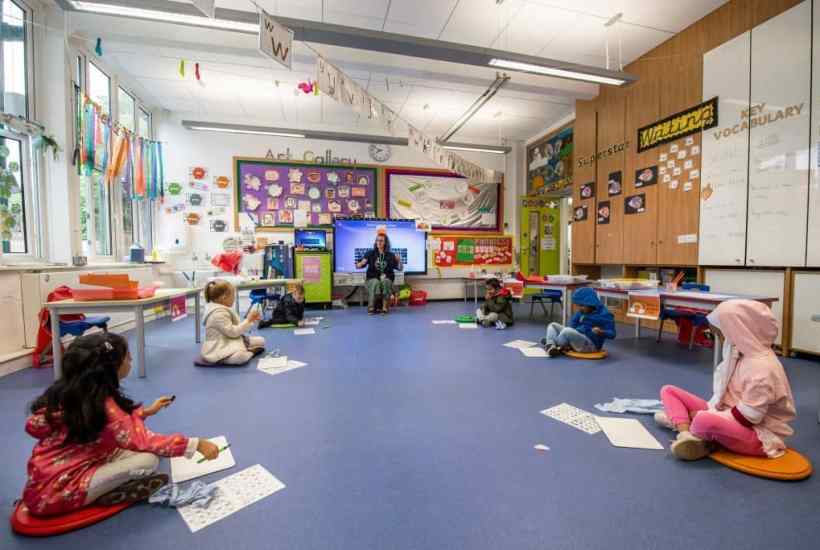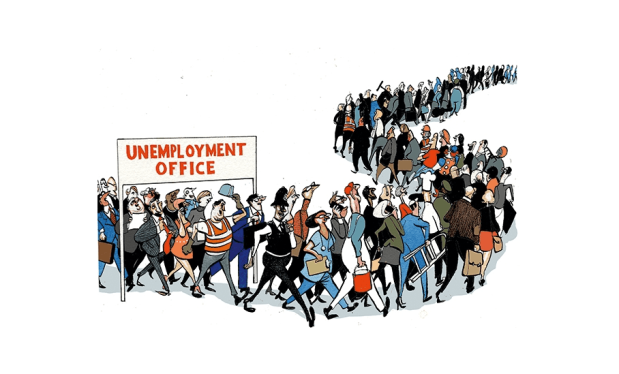How much damage did lockdown inflict on children’s development? This could be one of the least-explored scandals in public life given that neither Tory nor Labour (who both backed lockdown) are keen to look at the aftermath. But the Institute for Fiscal Studies is branching out from its normal financial remit and has published a report on early years inequality, and it has found serious grounds for concern.
The report, Early childhood inequalities (part of the Deaton review) looked at educational and developmental inequality in very young children: especially those aged two. This was a demographic that was considered by no one during lockdown, but other literature shows these two years are crucial in a child’s development. What effect might the lockdown have had on these infants?
The IFS gave scores for five ‘domains of development’ for two-year-old children. Falls were particularly steep in social and communication skills, with the proportion of children at the expected level declining by three percentage points during the pandemic. One in eight two-year-olds are unable to communicate at the level normally expected. The report’s authors said: ‘The Covid-19 pandemic is a further setback, with all signs pointing to the fact that it will have exacerbated early inequalities’.
The falls came despite ‘unprecedented’ investment in early-years education, development and care. Funding for free pre-school and early years childcare increased from £1 billion at the start of the Blair government to just under £4 billion by the end of 2019 – due to a wider understanding of just how important these first few years of life are. The funding, of course, wouldn’t have been much use when facilities were closed: some lessons just can’t be taught on Zoom.

Inequality data can be sparse. However, the study pointed to figures that suggest the inequality gap in childhood development among five-year-olds had been narrowing until the mid-2010s. It then began to widen and the authors say Covid may have ‘exacerbated’ the gap. The report goes no further than that.
The report comes after a study from Sweden found that ‘no learning loss’ had occurred in the country during its pandemic. Sweden of course kept its schools open – and as Matthew Parris argued in the magazine, ended up with a far lower death count than Britain. The study of 97,100 Swedish primary school children not only found no learning loss but also no specific disadvantage for poorer kids. The same can’t be said for England. The IFS highlights how any developmental declines were worse for the most disadvantaged parts of society. But then again, in Australia some studies have also suggested there was no learning loss there, despite school closures. Further research is urgently needed.
Data on absences is concerning too. Some 105,000 English school children are ‘severely absent’ meaning they miss more school days than they attend. Teachers report the same thing: anxiety up, attention down. ‘The ones that can’t cope don’t turn up’, one teacher is quoted as saying. More than 1,000 schools had an entire classroom full of children absent last Autumn – a 53 per cent increase on 2020.
The picture is the same across the country. In Scotland, the attainment gap – which Nicola Sturgeon calls her ‘defining mission’ – widened. Previously it has been narrowing at a snail’s pace. Concerningly not only did the gap grow but scores fell for the well-off as well as the most deprived.
With Baroness Hallett’s Covid public inquiry beginning its private evidence gathering, this could be the only real hope for an official look at the effect of lockdown in all of its dimensions. The IFS report offers a glimpse into what could be a far bigger story.
Got something to add? Join the discussion and comment below.
Get 10 issues for just $10
Subscribe to The Spectator Australia today for the next 10 magazine issues, plus full online access, for just $10.




















Comments
Don't miss out
Join the conversation with other Spectator Australia readers. Subscribe to leave a comment.
SUBSCRIBEAlready a subscriber? Log in